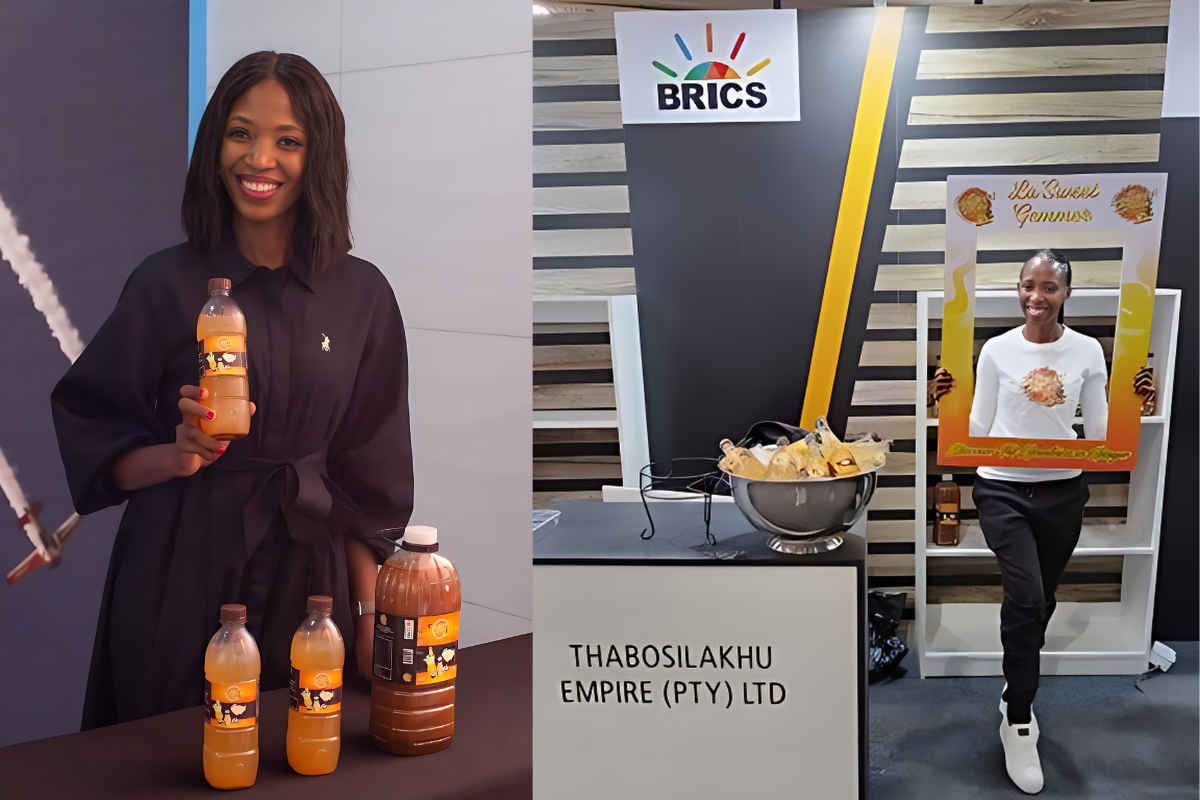From where I stand: With the right support, small, informal businesses can grow into thriving formal enterprises
Date:

I founded Thabosilakhu Empire, a food and beverage business in Blouberg South Africa, in 2016 to give expression to the entrepreneurial spirit in me that I’ve had since a young age. I used to sell various items throughout my life, from primary school through my working years. In 2013, I decided to resign from my job and fully dedicate myself to my business.
Before joining the EntreprenHER programme in 2019, my business operations were quite informal. I didn't keep records or track stock properly, which made it difficult to understand my business's financial health. I was just happy to make a living out of my business. Joining EntreprenHER was a turning point. I was part of the first cohort of the programme in Limpopo, South Africa and have since learned a lot. It provided me with essential training on record-keeping, financial management, and strategic planning.
The training helped me realize that some aspects of my business, like selling food plates, were not profitable. With proper record-keeping and self-assessment, I was able to streamline my operations and focus on more profitable areas such as juices, scones, and catering services.
One of the most significant changes was my approach to marketing. Before EntreprenHER, my business was not on social media, but now it is a crucial part of my business strategy. I get most of my customers through social media. Additionally, I have introduced uniforms for my staff and have improved the visibility of my shop with clear signage, making it recognizable from afar.
The EntreprenHER programme taught me the importance of product design and market research. I revised my business model to prioritise engaging with customers, soliciting their feedback, and understanding their needs. This approach has been particularly vital for the success of my ginger juice products. In general, the shift in my strategy and business model has helped me triple my income since 2018. In the 2022-2023 financial year alone, I made R300,000. Also, I went from running the business alone to contributing to the reduction of unemployment in this country by employing two permanent employees and five casual staff members who assist with big orders and events.
The support and mentorship provided by EntreprenHER was and is still invaluable. The mentors regularly checked in with us, offering guidance and support even after the training had ended. This continuous support helped me stay on track and apply what I had learned to my business.
One of the biggest highlights of my journey has been exhibiting my products at the BRICS Summit and the Presidential Exhibition. These opportunities have boosted my business's visibility and opened doors to new partnerships and markets.
Looking ahead, I have ventured into livestock farming, starting with goats. The demand for goat meat and milk is rising due to health trends, and I aim to become a significant supplier. This new venture not only promises to increase my income but also has the potential to create more employment opportunities within my community. I am excited about the future of Thabosilakhu Empire.
In all, the EntreprenHer programme has transformed my business from a small, informal operation into a structured, growing enterprise with a promising future. I am grateful for the knowledge, support, and confidence it has given me, and I look forward to continuing this journey of growth and empowerment.
The EntreprenHER programme, formerly called Accelerating Women Owned Micro-Enterprises (AWOME) is a training programme coordinated by UN Women South Africa Multi-Country Office and supported by the DeBeers Group in Botswana, Namibia, and South Africa. It aims to equip women entrepreneurs with the necessary skills to formalize and run successful businesses. In South Africa it is implemented in partnership with the Musina and Blouberg Municipalities in Limpopo.